
TOP OF THE BEST LGBTQ FRIENDLY COUNTRIES FOR EXPATS
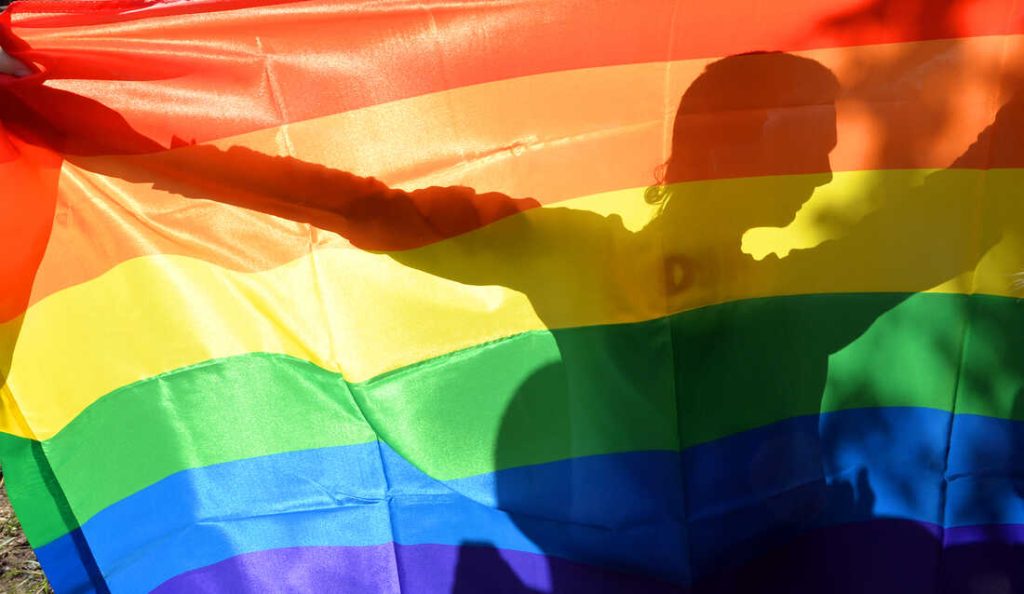
If you want to travel somewhere alone or with your partner or even move to, you probably would like to know where it’s easy to find full LGBTQ entertainment program and where it will be save and friendly. In this article we will introduce our top of the most friendly LGBTQ countries for expats.
Belgium
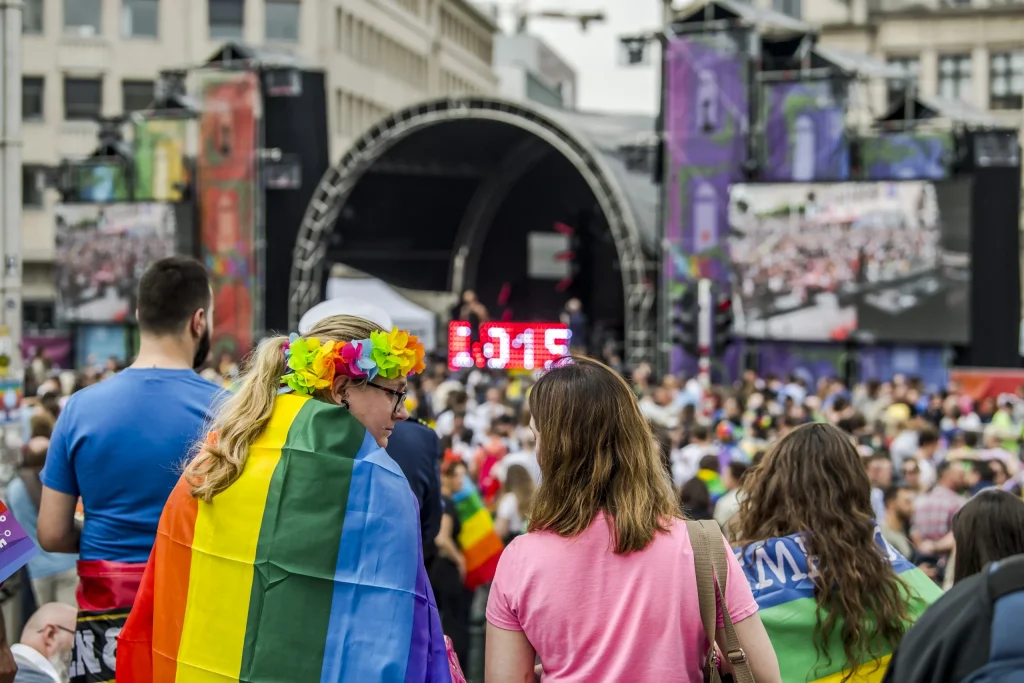
LGBT+ rights in Belgium are among the most progressive in the world; the country ranks second on the 2019 edition of ILGA’s Rainbow Europe Index. Same-sex sexual activity has been legal since 1795, when the country was a French territory. Discrimination on the basis of sexual orientation has been outlawed since 2003, the year Belgium legalized same-sex marriage. Couples enjoy the same rights as opposite-sex couples; they can adopt, and lesbians have access to in vitro fertilization. Same-sex marriages account for 2.5% of all weddings in Belgium.
Expats can marry in Belgium if one partner has been living there for at least three months. It’s also possible for non-EU/EEA nationals who are authorized to stay in Belgium to sponsor their partners on a Belgian family reunification visa.
Transgender rights are highly advanced in Belgium, where individuals may change their legal gender without surgery. However, ILGA recommends that more work be done in terms of intersex people; Belgium has yet to ban unnecessary medical interventions such as carrying out sexual determination surgeries on babies. Hate crime legislation for transsexual and intersex people has yet to be passed. A third gender on legal documents has yet to be introduced.
In general, Belgium displays an extremely high level of homosexual acceptance. The 2015 Eurobarometer found that 77% of Belgians thought same-sex marriage should be allowed throughout Europe, while 20% disagreed.
LGBT friendly scene in Belgium
Belgium has a large and well developed LGBT+ scene that caters to a diverse range of orientations and preferences. Antwerp (Antwerpen) had the edgier and more forward-thinking community, but Brussels has shed its bourgeois image in recent years. Bruges (Brugge), Ghent (Gent), Liège, and Ostend (Oostende) all have an active gay nightlife. May is generally Pride Month across the Kingdom, with Brussels hosting the biggest parade.
Spain
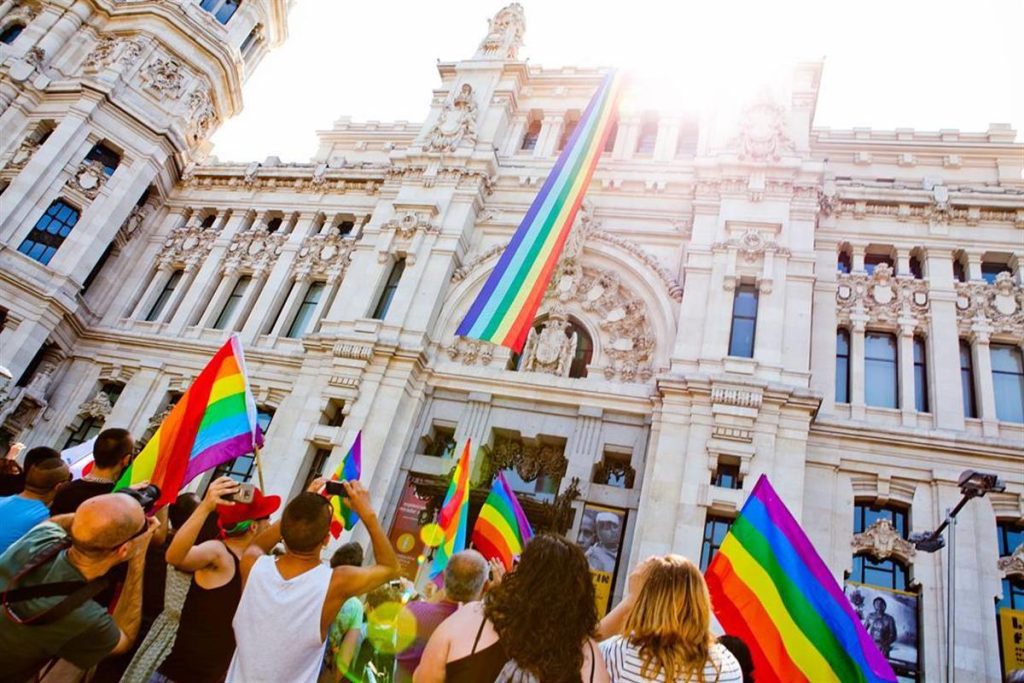
Envision yourself knocking back cava with your husband on a terrace in Madrid? The rise of anti-LGBT political parties notwithstanding, Spain is one of the most culturally liberal places for gay people. Same-sex marriage in Spain has been legal since 2005. Spanish literature, music, and cinema frequently explore LGBT+ themes. From Madrid to Gran Canaria, the country has a diverse and welcoming scene for all members of the queer community. Same-sex expat couples living in Spain have a number of legal rights when they register their partnership. These include adoption, automatic parenthood recognition on birth certificates, inheritance tax, rights to survivor pensions, recognition for immigration purposes, equal treatment for tax purposes – including inheritance tax – and protection from domestic violence. Spain ranked 11th in Europe for same-sex rights in 2019, with full equality at about 60%.
Since 2007, people have been able to change their gender in Spain, and the country is one of the world’s most supportive of trans rights. In 2018, 27-year old LGBT+ activist Angela Ponce became the first transgender woman to compete in the Miss Universe contest, where she received a standing ovation.
LGBT+ events in Spain
For a Catholic country, Spain is extremely LGBT friendly. Nearly 90% of the population accepting of homosexuality, according to the last Pew Research poll. In 2006, Sitges unveiled the country’s first LGBT+ monument to commemorate a 1996 police crackdown on gay men at the beach at night.
The Netherlands
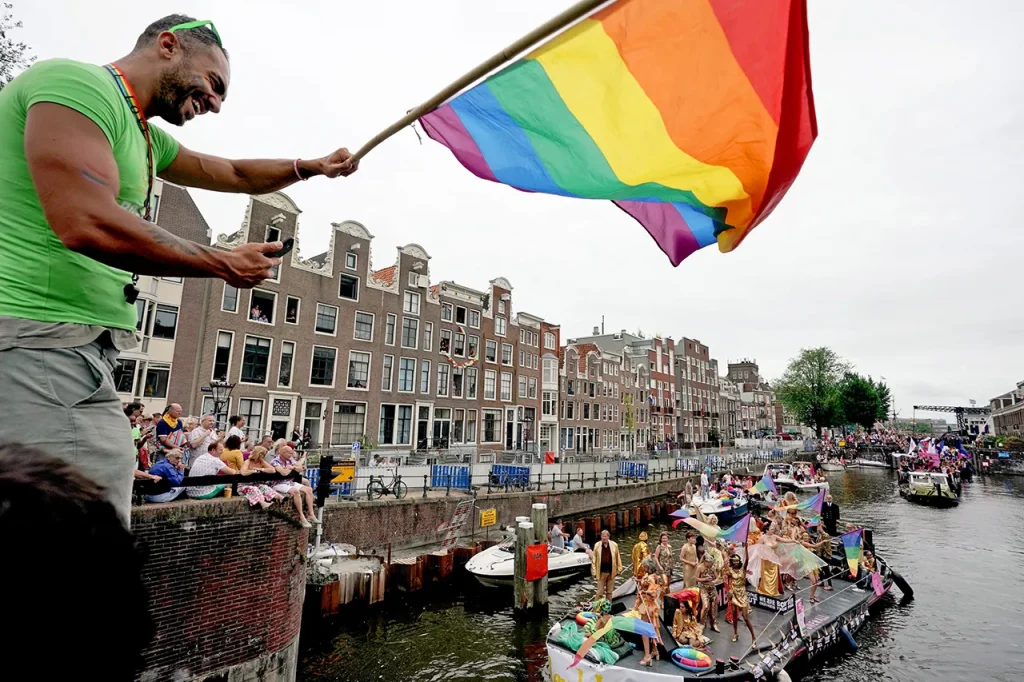
As the first country to legalize same-sex marriage in 2001, the Netherlands has an emotional connection with LGBT+ people. The Netherlands decriminalized homosexuality in 1811; the first gay bar opened in Amsterdam in 1927; and in 1987, Amsterdam unveiled the Homomonument, a memorial for gays and lesbians killed by the Nazis. Religious solemnizations of same-sex marriages have been performed since the 1960s. Civil marriage officiants cannot refuse same-sex couples. Same-sex marriage isn’t possible in Aruba, Curaçao, and Sint Maarten, however.
Expats can sponsor their partners. They must prove an exclusive relationship, sufficient income, and pass the integration exam. Same-sex couples can adopt or use surrogacy services. Discrimination of sexual orientation in employment and housing is illegal. Same-sex couples enjoy equal tax and inheritance rights.
Children can change their gender. Trans adults can self-identify without a doctor’s statement. Dutch nationals may apply for gender-neutral passports. Activists say more must be done regarding intersex rights.
74% of the population has a positive attitude towards homosexuality and bisexuality. 57% are positive about transgender people and gender diversity, according to a 2017 study by the Netherlands Institute for Social Research. Although an LGBT friendly country, the Netherlands fares worse than its neighbors regarding hate crime and speech and conversion therapy remains legal. The flatlands ranked 12th in Europe for same-sex rights in 2019. Same-sex couples enjoy half the rights that heterosexual couples have.
LGBT+ events in the Netherlands
The Dutch capital, often dubbed the gayway to Europe, has a vibrant LGBT+ culture and caters to all appetites and fetishes. The gay scene extends well beyond Amsterdam, however, with bars, saunas, and cinemas in several Dutch cities, including Rotterdam, The Hague (Den Haag), Amersfoort, Enschede, and Groningen. Many cities also hold their own pride events, complete with participation from local politicians. Pride Amsterdam, with its canal parade, is the largest, and attracts some 350,000 people each August. Dutch LGBT+ support groups have a countrywide network; there are also specific organizations that support refugees.
Malta
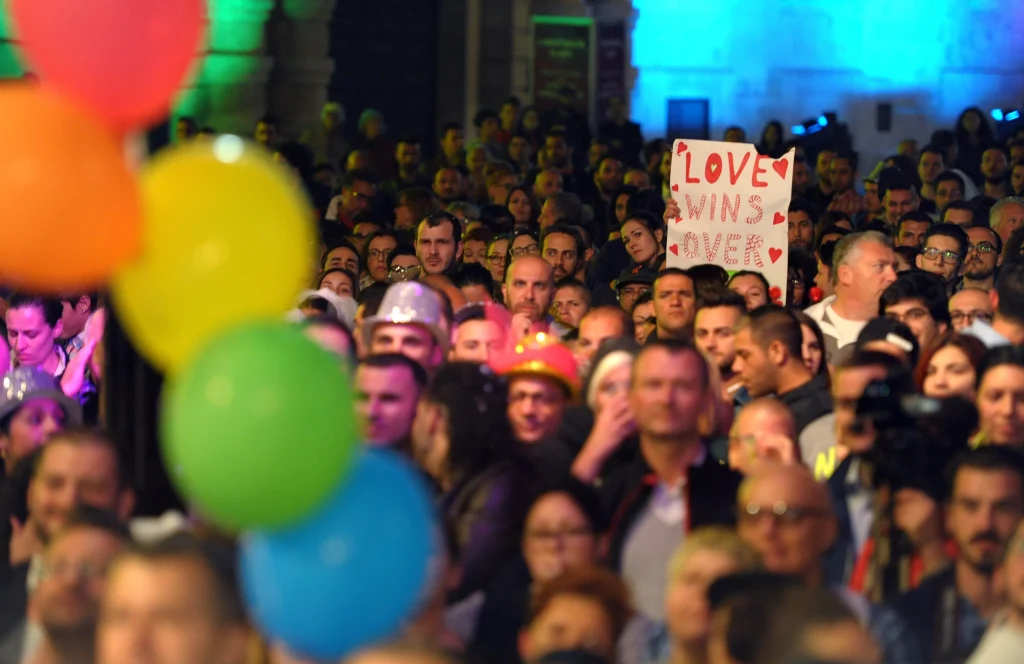
Valletta doesn’t immediately spring to mind when you think of the world’s gay capitals, but tiny Malta has topped the Europe Rainbow Index for four years in a row. Malta beats out 48 other countries with a score of 90% when ranked on LGBT friendly policies and lifestyle acceptance.
Malta is one of just a handful of countries whose constitution prohibits discrimination on grounds of both sexual orientation and gender identity, including in the workplace. Same-sex marriage has been legal since 2017 and there are no minimum residency requirements; Malta is ideal for a destination wedding as a result. Single individuals and couples, regardless of sexual orientation, enjoy adoption rights, and lesbians may access in vitro fertilization treatment. Homosexuals also serve openly in the military. Gay men are, however, banned from donating blood.
Transgender and intersex rights are amongst the strongest in the world. People may change their gender legally without surgery.
Public attitudes to the LGBT+ community have changed radically over the past decade. A 2016 Eurobarometer reported that 65% of Maltese were in favor of same-sex marriage; this was a significant jump from just 18% in 2006.
LGBT+ events in Malta
Despite having a LGBT friendly government, the LGBT+ scene is not as well developed in Malta as it is other European countries, with relatively fewer dedicated bars and cafés. Nonetheless, a majority of nightlife venues and beaches are LGBT friendly and welcome the community. The pride parade in Valletta every September is a major tourist draw, often with local politicians in attendance.
New Zealand
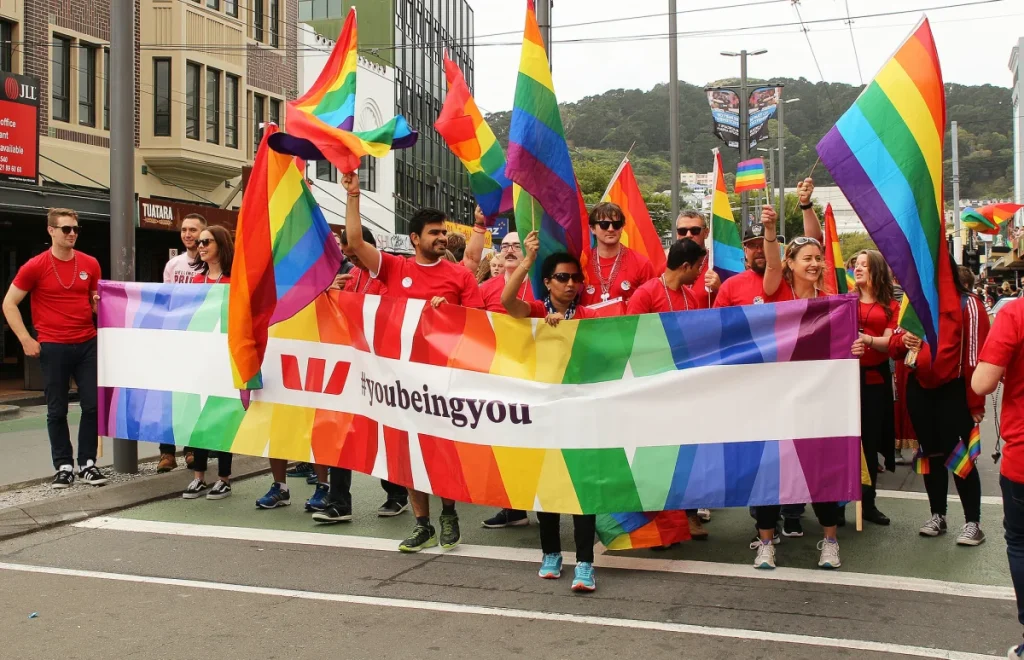
Often voted one of the best places to be an expat, progressive New Zealand also has a great record on LGBT+ rights. New Zealand’s constitution is LGBT friendly, offering several protections based on sexual orientation. Same-sex marriage has been legal since 2013. Unmarried couples of any gender may adopt children jointly. Lesbians have access to in vitro fertilization treatments.
New Zealand also recognizes married or de facto relationships for expat couples, whether heterosexual or homosexual. An expat may sponsor their partner, but must at least have permanent residence. Australian citizens or permanent residents may be able to sponsor a partner’s visa.
The law is unclear on transgender rights, however. Discrimination on grounds of gender identity isn’t explicitly outlawed. People may change their gender on their driving license or passport with a statutory declaration; however, doing the same on a birth certificate requires proof of medical treatment towards transition. As of March 2019, a bill allowing self-identification has been delayed pending public consultation.
New Zealand’s history of tolerance goes back to pre-colonial Māori times, although British colonization resulted in anti-sodomy laws. The country decriminalized homosexuality between men in 1986; lesbian activity was never a crime in New Zealand. There have since been several out-and-proud gay and transgender members of parliament. Over 75% of New Zealanders accept homosexuality.
New Zealand’s anti-discrimination laws and same-sex marriage do not extend to its realm, however.
LGBT friendly New Zealand
New Zealand has a reasonably sized scene that extends across the country. Wellington and Auckland boast the largest number of gay bars and clubs, but LGBT+ residents in Tauranga, Christchurch, Dunedin, and Hamilton are also guaranteed a good night out. Pride parades have been organized since the early seventies, and today there are at least six different major events each year.
Hong Kong
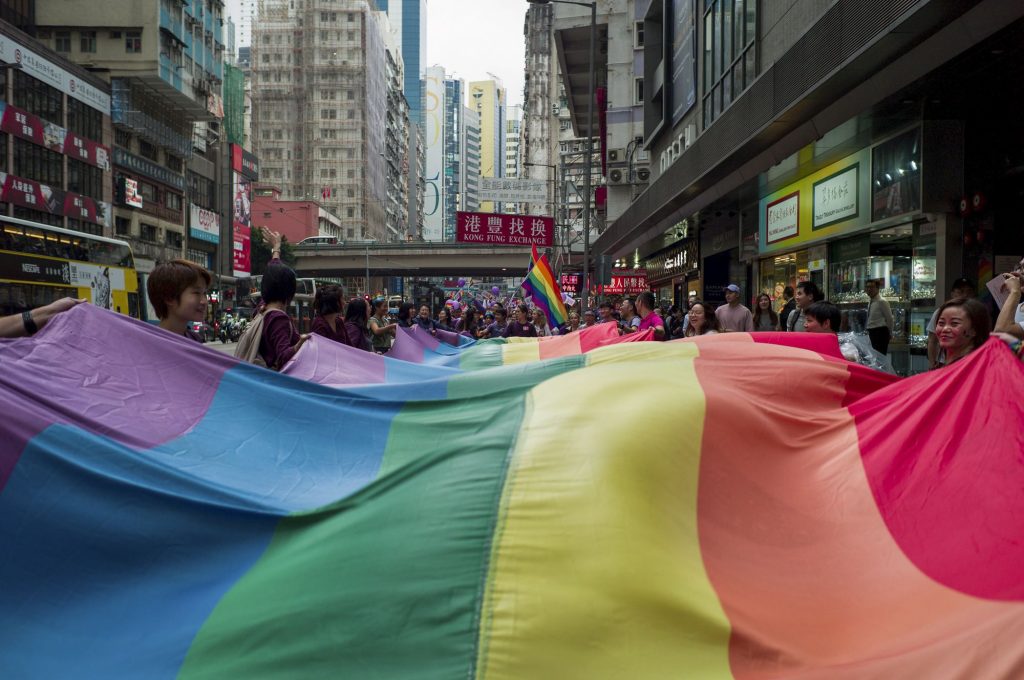
A 2018 recognition of spousal visas for same-sex couples by the Court of Final Appeal raised the hopes of expats looking to move to Asia’s financial hub. Homosexuality itself has been legal since 1991; however, local law doesn’t recognize same-sex marriage or civil partnerships. This could change following the Hong Kong High Court’s January 2019 agreement to hear two separate challenges to the territory’s ban on same-sex marriage. In May 2019, a local pastor also moved the High Court, arguing that the ban hinders his congregation’s freedom to worship.
Anti-discrimination laws are also fairly weak. Although LGBT+ people may not be legally hindered in their access to government services, campaigners say discrimination is widespread. Same-sex couples cannot apply for public housing or enjoy their partner’s pension benefits. Nonetheless, cohabiting same-sex couples enjoy some protections under local domestic violence laws.
Transgender people may not change legal documents to reflect their identities without gender-confirmation surgery, according to a February 2019 ruling.
Social acceptance grown as the territory has become more LGBT friendly in recent years. In a 2013 poll by the University of Hong Kong, 33.3% of respondents supported same-sex marriage, with 43% opposed. The following year, the same poll threw up similar results, though 74% of respondents agreed that same-sex couples should have the same or some rights enjoyed by heterosexual couples. By 2017, the survey found that 50.4% of respondents supported same-sex marriage.
LGBT+ scene in Hong Kong
Expat-heavy Hong Kong has a confident and thriving LGBT+ subculture. The city is home to an annual pride parade. There is also a wide variety of bars, clubs, and gay saunas; this is possibly because of social pressures to conform to traditional heteronormative models. Local films and television productions regularly explore queer themes; several entertainers have even come out in recent years, usually to a largely positive reception. Hong Kong Pride is held each November and attracts an estimated 10,000 people.
Argentina
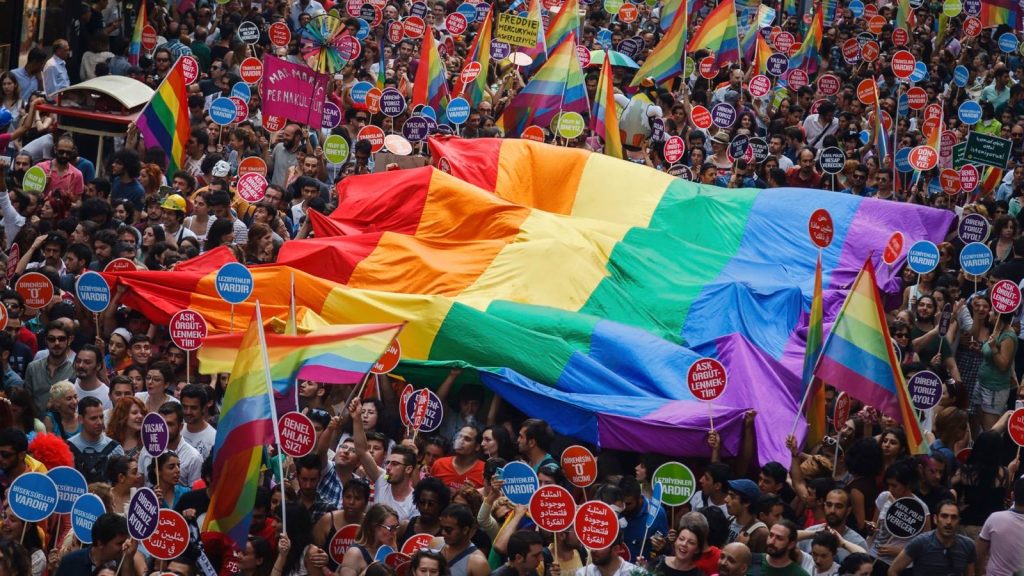
Latin America’s beacon of LGBT+ rights, Argentina’s queer history goes back to the indigenous Mapuche and Guaraní people. These groups not only accepted the third gender, but also treated male, female, transgender, and intersex people as equal. As an LGBT friendly country, Argentina has had a thriving LGBT+ scene since its return to democracy in 1983. In 2010, it became the first country in Latin America and the tenth in the world to legalize same-sex marriage, a milestone for a Catholic country anywhere. The law allows same-sex couples to adopt, and lesbian couples have equal access to in vitro fertilization treatment. Prisons permit conjugal visits for gay prisoners. Same-sex expats and tourists can also get married in Argentina; however, those marriages are not recognized where such unions remain illegal.
Transgender rights in Argentina are among the most advanced worldwide. Thanks to the 2012 Gender Identity Law, people may change their gender without facing medical interventions.
Overall, the public is extremely supportive of the LGBT+ community. Argentina had the most positive attitudes of all Latin American countries in Pew Research Center’s 2013 Global Attitudes Survey, with 74% of those surveyed saying homosexuality should be accepted.
LGBT friendly Argentina
Buenos Aires is Argentina’s gay capital. It has been an LGBT+ tourist destination since the early 2000s, with its Queer Tango festival among the major highlights. Expat-friendly neighborhoods such as Palermo Viejo and San Telmo boast several gay-friendly establishments. However, the scene extends to Rosario, Córdoba, Mar del Plata, and Mendoza in the center of the Argentine wine country.
Canada
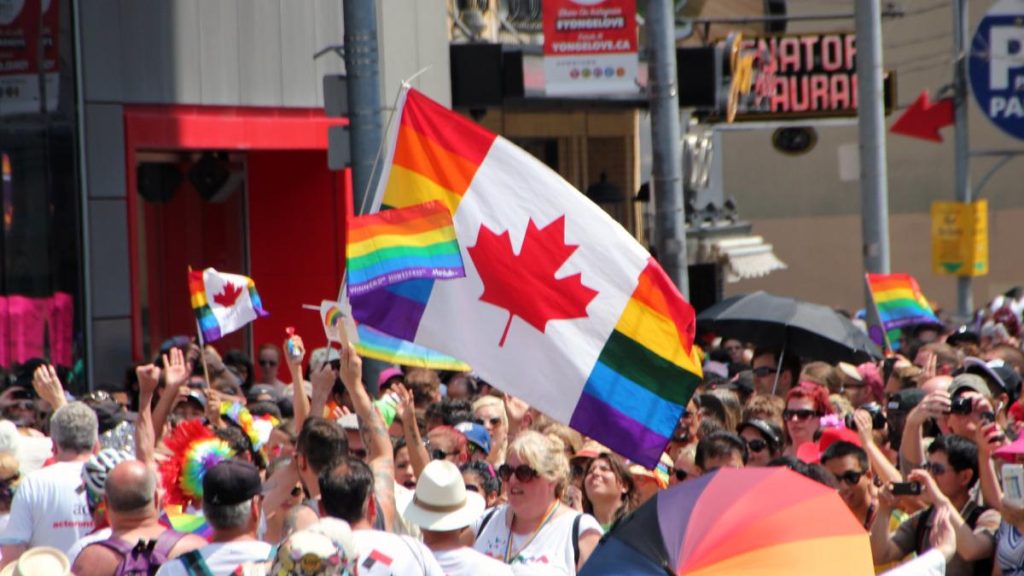
With its liberal policies and relatively welcoming attitudes to immigration, Canada has long attracted LGBT+ individuals from abroad. High quality of life and healthcare services are a bonus.
Since 1982, the Canadian Charter of Rights and Freedoms has guaranteed fundamental human rights to the LGBT+ community. Same-sex marriage has been legal since 2005 (although the world’s first gay marriages took place in Toronto in 2001). Same-sex couples can adopt children and have access to altruistic surrogacy. They’ll also enjoy equal social and tax benefits, including those relating to pensions, old age security, and bankruptcy protection.
Trans people can change their names and legal sex without surgery; those who elect to have surgery can use public healthcare coverage. Since 2017, people with non-binary gender identities can note this on their passports.
Civic attitudes to LGBT+ people are progressive, with a 2013 Pew survey noting that 80% of Canadians accept homosexuality. Subsequent polls show most Canadians agree that same-sex couples should have the equal parental rights. In April 2019, Canada released a commemorative loonie (the one-dollar coin) to celebrate 50 years of the partial decriminalization of homosexuality.
LGBT+ scene in Canada
As is the case elsewhere, LGBT+ life tends to be concentrated around the major cities, particularly Toronto, Vancouver (often rated among the world’s best cities for expats), and Montreal. Edmonton and Winnipeg also boast LGBT+ scenes. Pride parades occur across the country each summer with participation from regional and national politicians; Prime Minister Justin Trudeau became the country’s first head of government to take part in Pride Toronto in 2016.